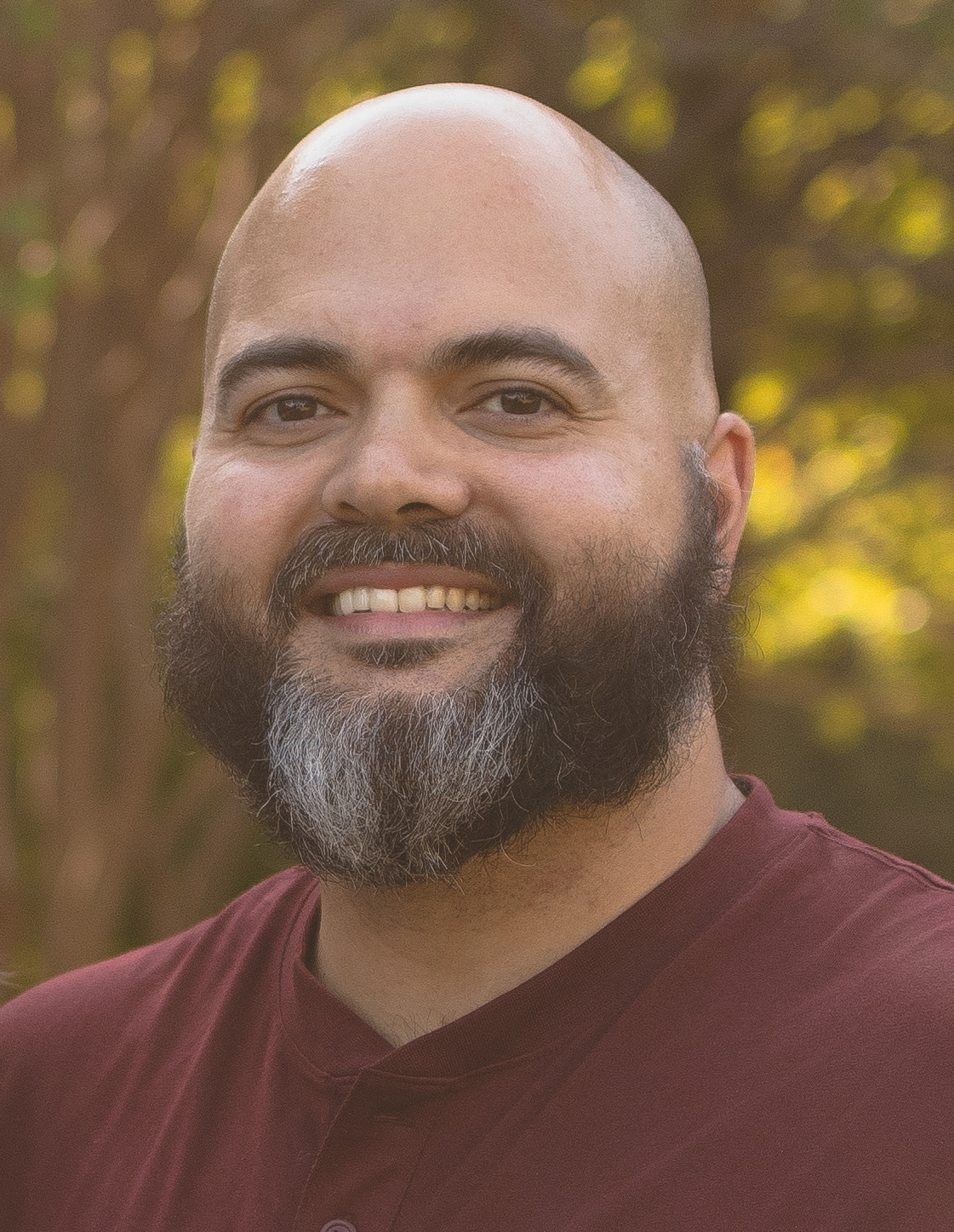Difficult, but necessary
I took off my AirPods and stared blankly into the distance near my apartment complex. I had been deep into studying a theological concept for weeks now and I finally realized something that honestly scared me. The books, podcasts, blogs, and YouTube videos all resonated like a gong awakening someone from their sleep – and this was the final sound. I had changed my mind. I was raised to believe in an idea that I thought Jesus would agree with. But after weeks of studying, I realized it looked nothing like the Christ I am trying to follow. I had to deconstruct a dangerous idea, even if I thought it wasn’t popular amongst my friends, family, and church. But what now? Of course. Now starts the hard part of actually reconstructing something that Jesus of Nazareth would not only just approve of, but celebrate and say, “This is what I’ve been trying to say all along! But you weren’t listening!” This has been an ongoing theme in my life every few years. It started off tame with ideas that honestly really didn’t matter much. Then it trickled down to times when I would have to make sure the title of the podcast I was listening to was hidden as I was going about. I didn’t want anyone to know I was listening to that podcast. “Once you start listening to that, then it’s just a slippery slope to hell,” I could hear the fundamentalist angel on my shoulder say.
I’ve gone through a few rounds of the deconstruction process tackling certain controversial topics, such as LGBTQ and the church, atonement theory, women in ministry, biblical inspiration, politics and the church, the after life, and other ecclesiological topics. (I won’t tell you which ones I’ve deconstructed or kept alone here. Maybe another time I’ll share) I’ve also seen friends who were dedicated followers of Jesus decide to share with the world how they’ve lost their faith, or other friends who have deconstructed so much of their faith that it looked more like it was destroyed entirely. At first glance, I wondered how it was possible to lose their faith. When I looked again, I felt envious. They don’t have to deal with the issues of the church anymore. They don’t have to look at spiritual abuse in the face and recover from the experience anymore. Yes, I’ve come out of the deconstruction process with my faith stronger than ever. But it still doesn’t help with the fact that I’m left with pieces to pick up, hearts to mend, and therapy bills to pay. This process is hard and difficult, but I believe it’s necessary. The idea that I wanted to share right now is the topic of deconstruction and why it’s healthy for a Christian to constantly deconstruct their religion to ultimately discover more of Jesus.
Preston Ulmer recently wrote a book called “Deconstruct Faith, Discover Jesus“, and it was a fantastic read to help me illustrate what up until now, I’ve only had thoughts about. Now I have tools to share to help walk with Christians who are going through this deconstruction process. Here are two key takeaways that I’ve learned from his book.
1. Deconstruction is not a phase, but a holy process
Before we talk past each other, let’s define what we’re talking about. Deconstruction is “the taking apart of an idea, practice, tradition, belief, or system into smaller components in order to examine their foundation, truthfulness, usefulness, and impact.” I love illustrations and one of the best illustrations Ulmer used to describe deconstruction was the making of Mt. Rushmore. From 1927 to 1941, the carving of Mt. Rushmore to create the four presidential faces required a lot of dynamite and creativity. Organized religion is like an immoveable mountain, and the only way to transform it to really see the face of Jesus is to blow it up intentionally and systematically.
Some may push back and think this idea is too violent and messy. Why not use another word or describe it a different way. The thing is that there are “ideas, beliefs, and practices that are not a part of God’s forever plan” that need to be not only left behind, but destroyed. And some ideas are as strong as a rock and need dynamite (as messy as it is) as the tool to do the job. After all, “a true deconstructionist isn’t trying to disprove Christianity but to improve it!” They are trying to carve a beautiful face at the end of it all – the face of Jesus. And “deconstruction should be a means to an end; namely, the reconstruction of one’s faith to be passed on with humility, stability, and a newfound personal confidence.”
Another great illustration to help us in this topic is the Disney movie Encanto. In this magical kids movie, we meet the Madrigal family in Colombia. They were each given magical powers to help the community and strengthen the family. However, the magic begins to fade and cracks start to appear in Casita, their home. Mirabel, the only family member who didn’t get any magical powers, starts to alert the family that the magic is fading and she wants to fix it to save the encanto. After this, the matriarch of the family, Abuela, assures the community, “Everything is fine! The magic is not fading. There’s nothing to worry about.” Thus, Mirabel goes on a quest to not only prove that the magic is fading, but also fix it, and restore her family.
Many deconstructionist find themselves in the place of Mirabel. They see “cracks” in their church or belief system and some Christian leaders even push it under the rug and say, “Nope. Everything is fine. Just pray about it. And if you really do think there are cracks then you’re tearing apart our church family.” That’s not helpful. But what do we do? We obviously see flaws in some doctrines we were taught. We see the hypocrisy of pastors and abuse in the church. We find things that don’t add up and all we want to do is acknowledge it and fix it, but instead are gaslighted. “When the answers aren’t working, people move to questions. And when the questions aren’t allowed, they feel like they don’t have a home anymore.”
This is why we need to learn how to deconstruct with a loving church community, because “if the church doesn’t accompany deconstructionists in their journey to reconstruct a personal relationship with Jesus, then the church will be deconstructed altogether, with no one left to rebuild with its remains.” If I still haven’t convinced you that healthy deconstruction is helpful for the doubting Christian, then you should really consider picking up Ulmer’s book, as he goes into much more depth with the topic. But maybe I have convinced you in this short point. So what then? How do we deconstruct in a healthy way so we don’t fall away from the faith or hurt others along the way? This is where Ulmer get’s practical as he uses a fun acronym to help us remember the process.
2. How to light the F.U.S.E. in deconstruction
Yes, it’s true. Many of those who deconverted away from Christianity got there from deconstructing. But does deconstruction always lead to deconversion? What is the purpose of healthy deconstruction? The purpose of a firearms safety class is to help prevent the misuse of firearms. There may have been some who have used the skills learned in these classes to actually murder someone. So does this mean we need to stop these safety classes? No matter what your belief system is about guns, the wise person would say, “No.” It’s because it has a main objective. In the same way, deconstruction may lead to deconversion with some people if it’s misused, but the purpose of deconstruction is to reconstruct our religion to see the face of Jesus. Using the acronym F.U.S.E. can help those who are skeptics deconstruct in a healthy way that meets its purpose.
F: Find The Specifics
Understanding exactly what we are deconstructing is helpful in many ways. One reason being that there are so many ideas that we can deconstruct or leave alone, but compartmentalizing them in our minds will help us to avoid throwing out the baby with the bathwater. Another reason is “we may know that something feels wrong, but oftentimes it’s hard to pinpoint exactly what it is.” Sometimes, we can’t find words to describe it. So Ulmer shares a cool diagram to help us find the specifics of what we are deconstructing. Check it out.

Remember, “destruction is to blow the whole thing up without regard for what may be true or helpful. Deconstruction, on the other hand, is to blow it up in parts.” This wheel can help us understand how some ideas relate with one another and which ones we can take away in parts.
“Whatever specific truth the deconstructionist is hung up on is substantially less important than the truth about the One who was hung up for them.” -Preston Ulmer
U: Understand Where It Came From
It’s also important to look at where these specific ideas come from whether it be from church history, a notable Christian preacher, your denomination or pastor, from the Bible, or even from Jesus’ words himself. Here are three questions to ask yourself when you’ve pinpointed which idea your deconstructing:
- Where does this belief come from?
- Who is benefiting?
- Who does it harm?
For example, if an idea is only coming from a particular denominational tradition, if it’s only benefiting them, and it’s harming the people under them, then it’s safe to say this idea is definitely worth deconstructing. It’s helpful to research by reading books on the topic, listening to different interpretations of the specific scripture verse in question, or hearing from other’s perspectives.
S: Share the Impact
So many of those who have deconverted share their stories online through forums or social media. It helps them process all that they’ve gone through with another community that understands them. They do this mainly because when they were in the midst of deconstruction, their stories were not allowed to be shared or there were no avenues to share. Maybe even sometimes they were told their experiences were fabricated because others have had great experiences. It’s important to find someone else to process the specific ideas that have harmed you or the church, or to be that person who lends a listening ear, especially when church hurt is involved. This is why we need mature Christian leaders who’ve gone through deconstruction to help others. And it’s not just helping others believe the same things you believe, but rather building trust with them. “When church hurt is involved, we have to build trust before we can present Jesus as trustworthy. That is why allowing space to share the impact of our stories is critical to the process.”
E: Engage With The Remains
Without reconstruction, we’re really just destructing. “Even if the reconstruction doesn’t look like any theological home you’ve seen before”, it’s important to pursue building up the remains of what you’ve processed. We must be willing to not just admit we were wrong, but actually change our beliefs and actions. This part is scary because our faith will look different than it did before. There may even need to be a grieving process as you’ve transitioned from where you came from. After deep prayer and wise counsel, it may lead to you leaving your local church or denomination, to pursue another that does not provide the harmful ideas or doctrines. Maybe it means that you are called to stay in your church to do the hard work as a reformer with the help of your church leaders. It’s one thing to change an idea, and another to actually change culture. Counseling or therapy may need to be seriously considered to help you engage with what’s left. Whatever needs to happen, the reconstruction process is the most difficult but also the most beautiful. I’ll leave this point with a great quote from the book:
“On the other side of perplexity is not certainty but humility. In fact, to be certain about what can’t be known is to be what you started running from in the first place. It’s fundamentalism of another kind. Deconstruction is the easy part. Who doesn’t like lighting the fuse, stepping back, and watching it crumble? The work comes in the honeycombing process. Methodically chipping away at the mountain. Making sure that what we’re after isn’t ruining the mountain but restoring the face of Jesus….
Being tired of Christianity means you’re only in it for the explosions. Being tired in Christianity means you’re committed to the reconstruction process.”
Conclusion
When talking about deconstruction, there may be some who agree with me in that it’s a healthy, holy process. But maybe you’re reading and find deconstruction as an enemy to the faith because of what has come out of it. I know it’s scary. My job isn’t to convince you of this. One purpose in me writing this blog is to help me process this recent book I’ve read. But the main purpose is actually to help me in future conversations with my kids. They are four, five, and six, and I have one on the way. But they won’t just keep asking simple questions like, “Why do I need to go to bed so early?” or “How come I can’t put my hand on the stove?” One day they’ll ask questions like, “Why should I trust the Bible?” or “Why does God choose to heal some and not others?”
This is for them. I want to be able to walk hand-in-hand with them to process things. It’s hard for me to accept now, but I know that when my kids are my age, they probably won’t believe everything I do. They will probably deconstruct something that I’ve said or believed. I’m hoping it will be small, but nonetheless, this is how things work. I want them to be able to fall more in love with Jesus their whole lives, even if it means they need to deconstruct something I’ve taught them. It’s hard. But I’m learning to be humble and provide a healthy environment for my children to build, deconstruct, and rebuild their faith so our faith can be passed down for generations to come. This is my mindset, whether you agree with me or not.
I would love to hear your thoughts about this! You can message me on Instagram @apprenticeofjesus so I can hear your story.
Reflection Questions
- What do you think of the idea of deconstruction?
- Are you hestitant to deconstruct? Why or why not?
- Has there been a belief, idea, doctrine, or tradition that you have deconstructed? What was it? How did you process it?
- Do you have a close friend or family member you can talk about something you’re deconstructing without being judged?
Matt Garcia
Matt is the creator of this website and curates resources on spiritual formation. He is a husband of Jesika and a father of 4 children. He also helps lead a house church. Follow him on Instagram to see what he's up to.


